Options Abound in Hunt for Student Housing
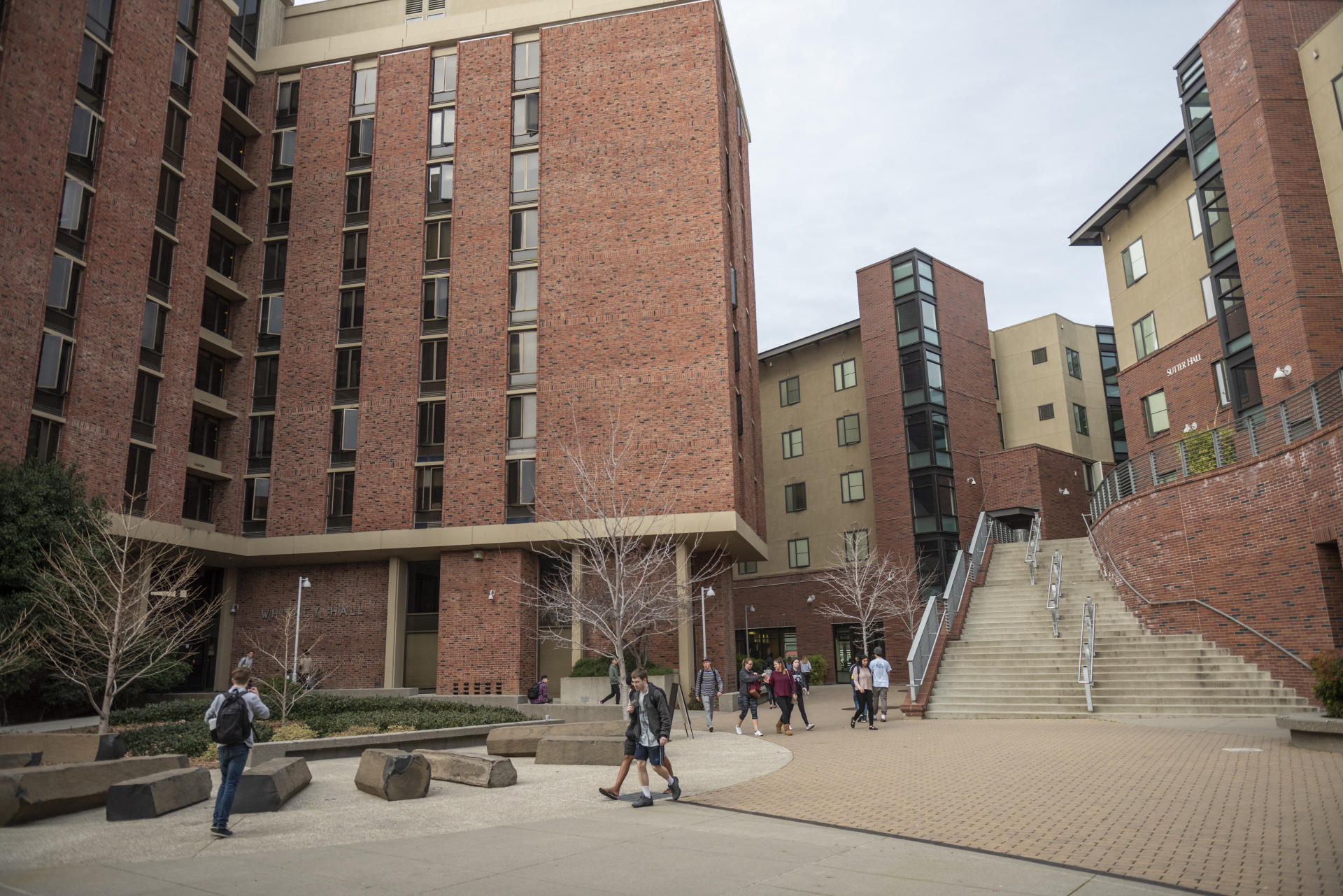
Whitney Hall (left) and Sutter Hall are two on-campus University-owned options students can choose from.
Junior Cyndi Ledet always lived in off-campus housing during her time at Chico State. But this spring, medical bills and less-than-desirable credit forced the sociology major to consider the nearly unthinkable: Find a more affordable place to live mid-semester.
The Camp Fire’s devastation to Paradise and other foothill communities ignited a legitimate, temporary housing crisis in Chico, briefly choking an already-tight housing market. The effects also rippled out into the city’s traditional student off-campus housing areas, worrying Ledet. She turned to Chico State’s University Housing for help, and learned housing options were numerous.
“It was in the middle of the semester, so you wouldn’t think there would be any spots available,” she said, “especially so soon after the Camp Fire.”
Ledet’s fears were quelled as she quickly found a place to fit her needs. She submitted an application on a Wednesday, it was approved the next day, and by that Saturday, she was living in her place at Chico State-owned University Village. With her room, all utilities, and a mini-meal plan included for the spring 2019 semester, she’ll be saving money every month.
“University Housing was absolutely on top of it, and there wasn’t a single second that I didn’t think they had something for me,” Ledet said. “Chico State has been an incredible resource.”
While Ledet’s situation may be unique in terms of timing, thousands of Chico State students—both current and future—are already hunting for housing for the 2019–20 academic year. And despite the narrative that finding housing for next year is impossible, University housing officials say that perception is simply untrue—it just may require a little more legwork.
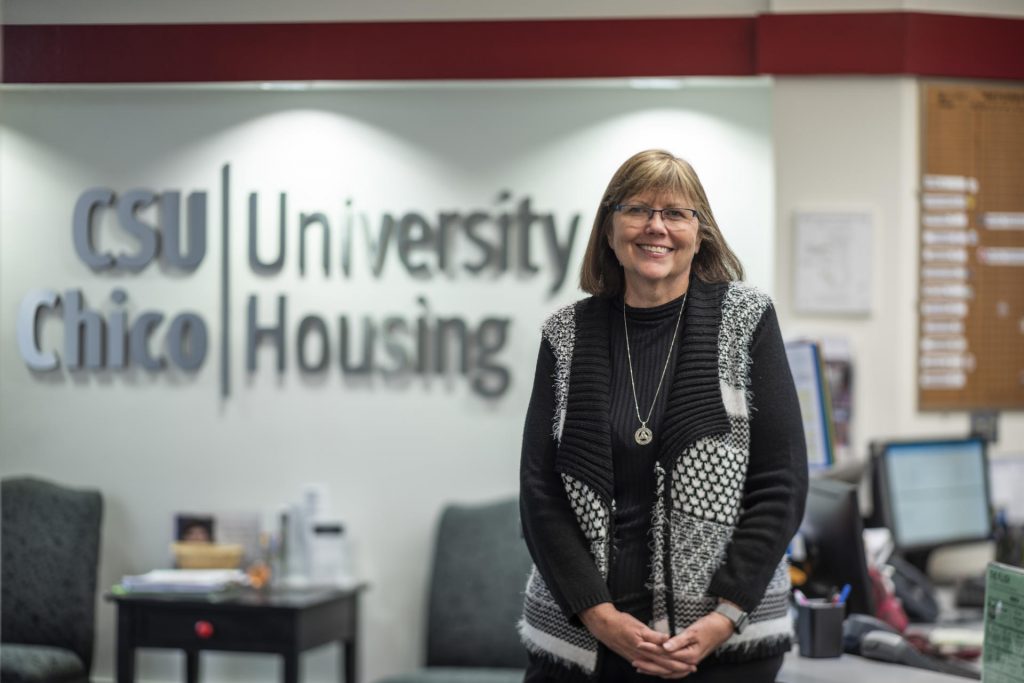
University-owned housing is the most popular option for new students, a group that includes transfer students, international students, and first-year freshmen. Connie Huyck, executive director of University Housing, said fluctuating enrollment from year to year dictates the occupancy rate in University-owned properties and affects availability throughout the school year.
“We’re normally at a 94 percent occupancy rate, and we’re at 97 percent right now,” Huyck said. “Some of that may be due to the Camp Fire, but some years we just have higher vacancies.”
For the 2018–19 academic year, University Housing is handling 2,173 beds, spread out over eight properties on and near campus. And for the 2019–20 academic year, that number will increase by more than 70 beds, by changing room configurations to accommodate more students. A few study rooms in Sutter Hall will be converted into quad rooms, while some of University Village’s larger studio apartments will double up beds.
Huyck said that while the influx of Camp Fire survivors into Chico has complicated on-campus student housing, these changes in room configurations have more to do with a response to overall student demand: At the start of the fall semester—10 weeks before the Camp Fire—University Housing had 150 students on its wait list. To help house as many Chico State students as possible, Huyck says re-configuring rooms “is probably something we would have done anyway.”
“We hadn’t made the decision yet before the Camp Fire,” Huyck said, “but we were already talking about ways to increase our occupancy to provide more University-owned housing for students.”
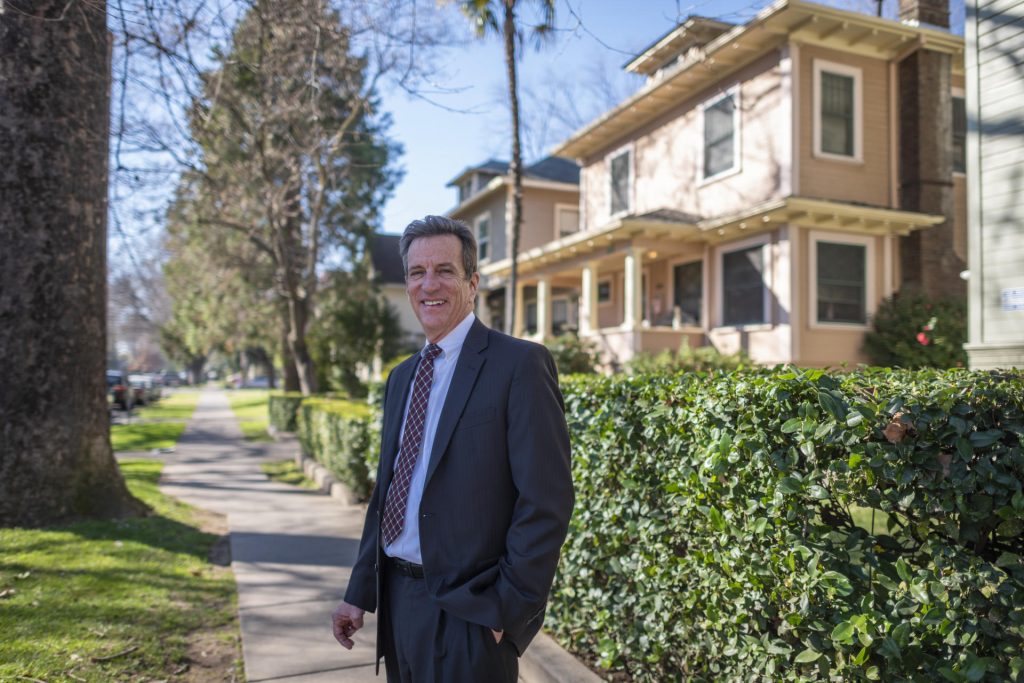
While sharing a bedroom in on-campus residence halls is practically a given for new students, doubling up (or even tripling) in bedrooms in off-campus housing is a regular practice in college and university cities across the nation. But traditionally not so in Chico, said Dan Herbert, director of Off-Campus Student Services. In fact, Chico State could be categorized as an outlier in not embracing this as a widespread viable option.
Yet, he knows adopting such a trend would take a significant culture shift.
“The perception that you’ve got to have your own room is such a Chico thing,” Herbert said. “It’s a cultural thing that we’ve never adjusted to.”
At most other campuses (including those in the CSU system), students don’t think twice about sharing a bedroom with someone, Herbert said. He added that sharing a bedroom would not only create a significant housing stock but also save students between $2,000–3,000 a year.
As part of his role, Herbert connects students with properties in the off-campus housing connections list, a selection of University-vetted management companies providing off-campus student housing. Their supply amounts to about 5,000 beds. Herbert worries that students are easily buying into the misperception of a housing crisis because of a few anecdotes from friends or their own limited experience.
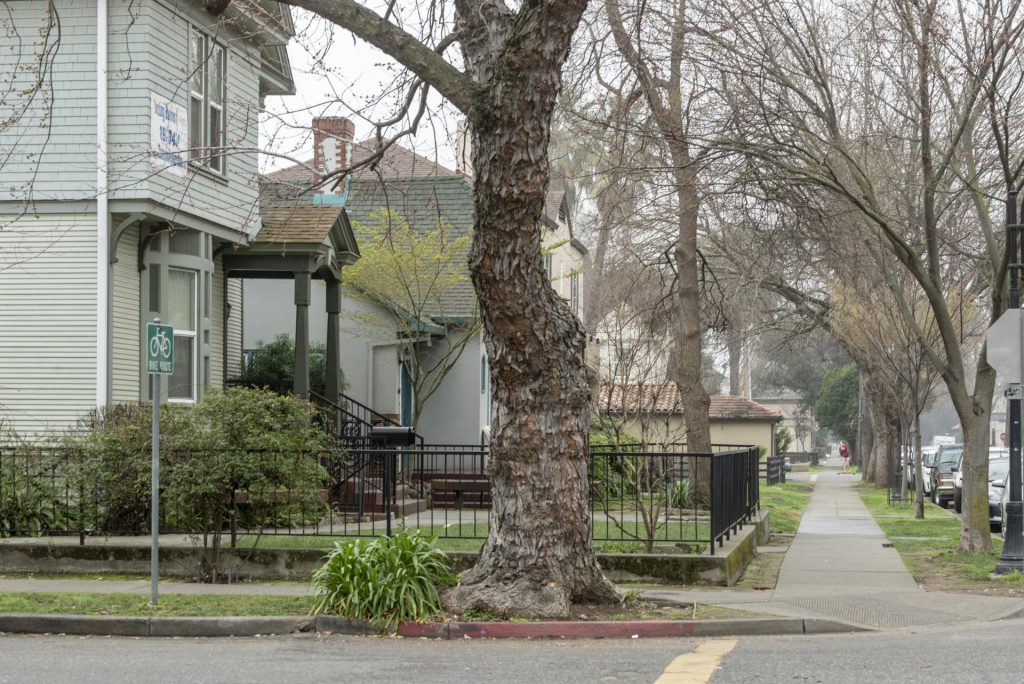
“I think what happens is students will call up one or two places, and if they’re told there are no vacancies, they assume there’s nothing,” he said. “Then I guide the students to different [properties] with vacancies and they say, ‘Oh, I had no idea!’”
Students can safely access the “Find a Roommate” listing from the off-campus housing database (which is updated in real-time) through the University’s Rental Housing Tools page.
It also certainly pays to network and look for housing early and often. Junior Katie Wiser transferred to Chico State and is finishing her first year. When looking for housing for the 2018–19 academic year, the marketing major “leisurely began looking” in January 2018, then got serious about it in March. After connecting with a high school friend who was already a Chico State student, she and the roommates moved quickly and finalized a lease within days.
And when it was time to secure housing for next year, she chose to look elsewhere in town. She teamed up with friends and said the process was actually quite easy.
“One of my [current] roommates did all of the house hunting and showed us some options, and we picked one we all liked,” said Wiser, who added she hasn’t heard any of her friends facing issues finding housing next year either.
With this academic year winding down, Huyck and Herbert agree that now is the time for students to secure housing for next year. As happens every year, regardless of the housing supply, the longer students delay, the fewer options they’ll have.
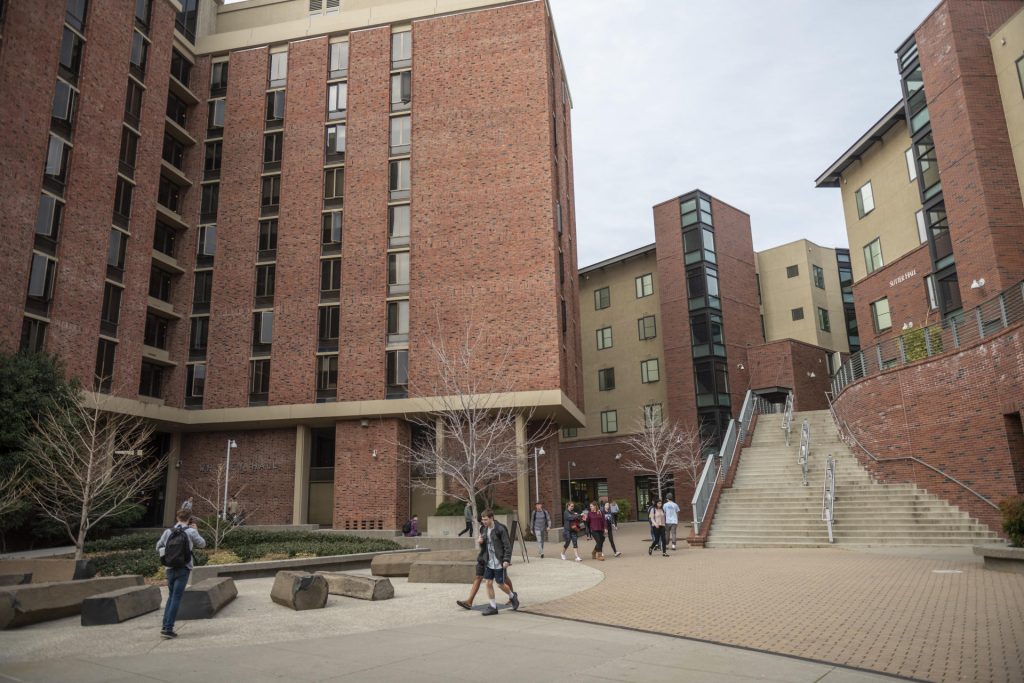
The application period for new students to apply for University-owned housing opens March 27 and will remain open until students return in August. Huyck anticipates that even with the additional beds, every space will be filled, as is the case every year.
For students seeking off-campus housing, Student Affairs will host a Housing Fair on Thursday, March 28, from 10 a.m. to 2 p.m. in Trinity Commons, where properties will promote their vacancies, answer questions for would-be tenants, and accept applications.
Herbert suggests students check the off-campus housing database often, and perhaps also manage expectations to consider all options.
“And if you really strike out, come see me,” he said, “because I’m on the phone with one or more of these property owners every day.”


